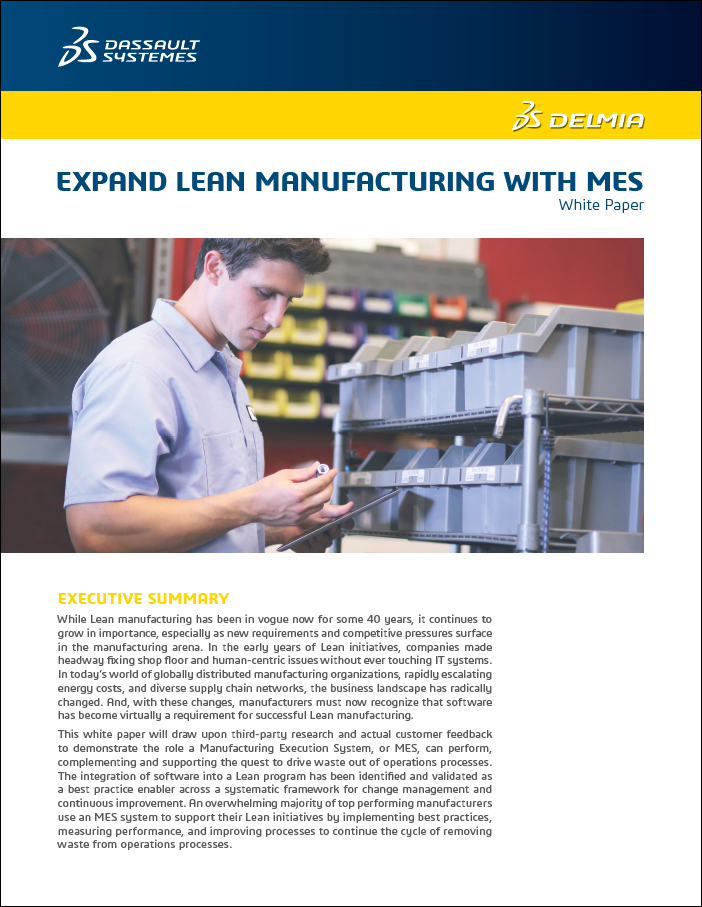Support Lean initiatives by implementing best practices, measuring performance, and improving processes

In today’s world of globally distributed manufacturing organizations, rapidly escalating energy costs, and diverse supply chain networks, the business landscape has radically changed. And, with these changes, manufacturers must now recognize that software has become virtually a requirement for successful Lean manufacturing. This white paper draws upon third-party research and actual customer feedback to demonstrate the role a Manufacturing Execution System (MES) can perform complementing and supporting the quest to drive waste out of operations processes.
The integration of software into a Lean program has been identified and validated as a best practice enabler across a systematic framework for change management and continuous improvement.
An overwhelming majority of top performing manufacturers use an MES system to support their Lean initiatives by implementing best practices. They also do it by measuring performance, and improving processes to continue the cycle of removing waste from operations processes.
MES – an Essential Component of Lean Manufacturing Success
In today’s world of complex global supply chains, ever-changing product mix, and greater demand volatility MES is the key. MES yields the benefits of continuous improvements, reduced waste, improved response times, as well as sustainability initiatives. Leaders in Lean have adopted Manufacturing Execution System to seamlessly integrate the requirements of the real-time plant environment with the transactional environment of business systems.
MES supports the application of Lean best practices while adding value to Lean initiatives, encompassing processes that span across multiple areas of operations. By efficiently establishing and maintaining business processes (ideally through a framework of BPM) and the collection of operations data throughout production, the supply chain, warehousing, and the execution of maintenance management programs, a more cost-efficient Continuous Improvement program is possible, saving time and resources to further maintain and optimize operations performance within the business.
